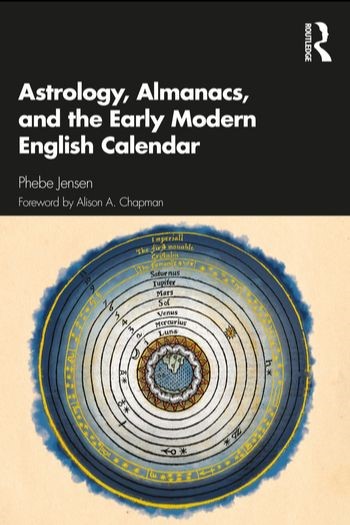Dr. Phebe Jensen Publishes New Book on Astrology, Almanacs, and the Early Modern English Calendar

Dr. Phebe Jensen, Professor of English and Interim Department Head, has just published a new book with Routledge Press, Astrology, Almanacs, and the Early Modern English Calendar. As a practical guide to early modern English calendars and the social, mathematical, and scientific practices that inform them, the book strives to be a useful tool for historians, cultural critics, and literary scholars working in the period, especially those with interests in astrology, popular science, popular print, the book as material artifact, and the history of time-reckoning. The book outlines the cosmological, astrological, and medical theories that undergirded calendars, and traces the medieval evolution of the calendar into its early modern format against the backdrop of the English Reformation. It also reconstructs the visual iconography of time-reckoning in the early modern period, with over one hundred illustrations that demonstrate the iconography associated with the four seasons, twelve months, and seven days of the week. These images are gathered from farming manuals, almanacs, continental prints, and material culture, including church and household decorations such as needlepoint, stained glass, misericords and baptismal fonts.
Dr. Jensen is a scholar and teacher specializing in Shakespeare and early modern literature and culture. Her work on popular science emerges from early work on popular religion, including her first book, Religion and Revelry in Shakespeare’s Festive World (Cambridge, 2009). A chapter in that monograph on almanacs and A Midsummer Night’s Dream first sparked her interest in calendars. Her new book represents the completed primary research for her current interpretive project, a book length study of astrology in Shakespeare, from which she has recently published two essays: one on King Lear in Shakespeare Quarterly, and another on Christopher Marlowe’s Doctor Faustus that first appeared in the journal Reformation and has just been reprinted in a collection of essays, also from Routledge, titled Early Modern Literature and England’s Long Reformation.




